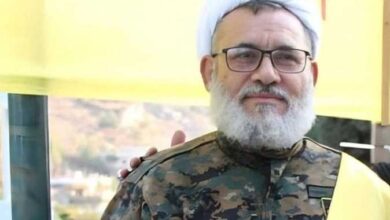Based on Thursday’s headlines, it seems the biggest news story on the third day of Eid concerns the question of whether or not it really is the third day of Eid. Making the front pages of independent dailies Al-Shorouk, Al-Dostour, and Al-Tahrir are reports claiming that millions of Muslims around the world have “broken their fast early by an entire day, based on a sighting of Saturn.” Traditionally, the holy month of Ramadan ends at the sighting of a new moon; a role that, this year, might have gone to Saturn instead.
“The sighting of a new moon last Monday would have been simply impossible,” Maged Abou Zahra, president of the Jeddah Astronomical Society, states in Al-Shorouk. “Saturn is visible this time of year, and can be easily observed with the naked eye. Either way, the new moon could not have been visible under Monday’s circumstances because the glare from the sun was too strong to observe the moon at that particular moment… this has been confirmed by the most prominent astronomers in the region.”
The mistake has inspired a wave of jokes and sarcastic tweets, as independent dailies such as Al-Shorouk and Al-Tahrir are quick to point out, Al-Tahrir carrying the headline: “Today is the second of [Islamic month] Shawal and the third of Saturn."
Also in Al-Tahrir is a report on an alleged Israeli-led assassination attempt against Egyptian presidential candidate and Nobel laureate Mohamed ElBaradei. The report claims that, in March, the CIA discovered the Israeli government’s plan to assassinate ElBaradei, a discovery which led to “violent political controversy between Washington and Tel Aviv,” as well as “the decision by the Americans to cut of all aid to Israeli Special Forces, until Israel abandons its plan to assassinate ElBaradei.” Al-Tahrir’s report adds that the story was exposed by several foreign news agencies following a series of recent CIA leaks. According to the report, the Israeli government’s “Operation Kiss of Death” would have been carried out through the use of a hypodermic needle.
Al-Shorouk leads with a report on the Freedom and Justice Party, which has begun to compile a blacklist of former members of the National Democratic Party, in an attempt to keep them from securing any seats in the upcoming parliamentary elections. “Vestiges of the dissolved NDP and State Security apparatus have been peeking out from underground,” Hussein Ibrahim, secretary general of the party, announced yesterday. “We must keep them from infiltrating the new parliament.”
In Al-Wafd, Magdy Helmy writes on the “secret of the suitcases of Mubarak’s money, smuggled out of Egypt by the Emirati Foreign Minister.” Helmy repeats claims already made by what he believes to be “reliable sources,” stating that the former president’s funds were smuggled into Abu Dhabi, and transferred into a bank account under the name of an Omani businessman who also serves as a “foreign communications consultant” to Sultan Qaboos of Oman. According to Helmy’s article, the suitcases also contained various documents and stock certificates, and some additional funds which were transferred into the bank accounts of various Emirati princes. Helmy further alleges that a one-day visit to Mubarak by the Emirati Foreign Minister on 8 February was arranged for the sole purpose of handing over the Egyptian president’s funds.
Al-Wafd also features a report on the death threats which Ahmed Refaat, the judge presiding over the Mubarak trials, has allegedly been receiving. The paper states that “Refaat has received death threats in his own home from members of the pro-Mubarak movement, promising to kill him should he find the former president guilty.” The paper then points out that Refaat is “under added pressure, as martyrs’ families have repeatedly stated that they are relying on him to avenge the deaths of their loved ones.”
None of the above stories make it onto the front pages of state-owned Al-Ahram and Al-Akhbar, the former focusing on foreign investment, and the latter on the increase of Egyptian troops in the Sinai peninsula. “Any adjustments made to the Camp David treaty will be reached through mutual agreement,” Ismail Etman of the Supreme Council of Armed Forces is quoted as saying in Al-Akhbar’s headline. In the article itself, Etman points out that the increase of troops is not in accordance with the treaty’s stipulations, adding that the troops are not stationed along the Egypt-Israel border and have instead been deployed to “locations more strategic and effective in the safeguarding of Sinai.” Etman also confirmed the existence of “extremist groups in the region, trying to create a rift between the armed forces and the residents of the Sinai peninsula.”
The Camp David accord is also mentioned on Al-Ahram’s frontpage, in a report on Israeli newspaper Haaretz’s call to “dissolve the treaty,” based on the “revelation” that it had been “co-signed by one dictator and passed on to another,” referring to former Egyptian presidents Anwar Sadat and Hosni Mubarak. According to Al-Ahram, the Haaretz article reasoned that the treaty should be cancelled as it is already on its way to “becoming obsolete.”
For its lead story, Al-Ahram reports that Prime Minister Essam Sharaf is “a few days away” from settling deals with 17 major businesses which will invest up to LE20 billion in Egypt. The timeframe, however, remains unspecified.
Egypt's papers:
Al-Ahram: Daily, state-run, largest distribution in Egypt
Al-Akhbar: Daily, state-run, second to Al-Ahram in institutional size
Al-Gomhurriya: Daily, state-run
Rose al-Youssef: Daily, state-run
Al-Dostour: Daily, privately owned
Al-Shorouk: Daily, privately owned
Al-Wafd: Daily, published by the liberal Wafd Party
Youm7: Daily, privately owned
Al-Tahrir: Daily, privately owned
Sawt al-Umma: Weekly, privately owned
Al-Arabi: Weekly, published by the Arab Nasserist party




